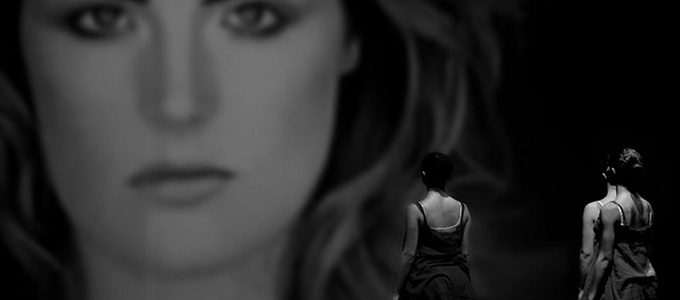by Julia Seymour
An advertisement from a cosmetics company went viral on television and on the Internet a few years ago. In the commercial, women described themselves to a forensic artist who could not see them. He made a second sketch based on a description from a stranger who encountered the woman in the waiting room. The drawings from the women’s own characterizations of themselves were often more grim and less attractive. Many did not actually resemble the person depicted.
This was not the fault of the artist, though, because the second drawings, made from a stranger’s description, were easily matched with their real-life counterparts. Each woman’s face, as described by a stranger, was more open and far more realistic to her appearance and demeanor. Dove’s “Real Beauty” campaign garnered lots of positive attention for encouraging women (and men) to see themselves as others do–with kindness and openness.
Regardless of the overt emotional impact of the campaign, this cosmetics company and its parent company, Unilever, want to sell products. Unilever also makes Axe body spray. Axe commercials frequently objectify women in the way the Dove commercials attempt to alleviate. Unilever also manufactures a skin lightener called “Fair and Lovely” specifically to Middle Eastern and Indian consumers. Suggesting that lighter skin is more beautiful skin is not exactly a “real beauty” message, even though it comes from the same company.
Our baptism
 In the Lutheran service for baptism, both the baptized and those gathered to support her are asked three questions:
In the Lutheran service for baptism, both the baptized and those gathered to support her are asked three questions:
Do you renounce the devil and all the forces that defy God?
Response: I renounce them.
Do you renounce the powers of this world that rebel against God?
Response: I renounce them.
Do you renounce the ways of sin that draw you from God?
Response: I renounce them.
These questions can feel strange and I often see furrowed brows as we move through this list and then on to the Apostle’s Creed. However, these are serious questions that are part of what it means to be baptized, to have a new life in Christ. These questions define our identity in Jesus because they help us to understand what it means to be a child of God.
The questions involves these elements: spiritual forces that are not of God, powers in this world that resist God’s will, and struggles within ourselves that attempt to make us feel separated from God. In thinking about what might be in those categories, the three questions become more relevant and our renunciations, more meaningful. When I talk through the service of holy baptism with children, I describe the questions this way:
Do you say no to things that do not like God?
Response: I say no to them.
Do you say no to lies that may be told about God?
Response: I say no to them.
Do you say no to sin, that is, actions that make you feel far away from God and God’s love?
Response: I say no to them.
Commercial culture does not like God. The companies that want us to align with their brands and define ourselves by what we buy have no interest in grace, mystery, or God’s presence in all the stages of our lives. They want us to strive for a standard of beauty that does not reflect the depth and breadth of God’s handiwork in skin tones, body shapes, and physical abilities. They sell a lifestyle that is the exact opposite of “Give us our daily bread” and “Do not covet your neighbor’s property.” With the help of the Spirit, we say no to them.
Jesus says, “Come to me, all you that are weary and are carrying heavy burdens, and I will give you rest. Take my yoke upon you, and learn from me; for I am gentle and humble in heart, and you will find rest for your souls. For my yoke is easy, and my burden is light.” (Matthew 11:28-30)
When we are struggling with faith or church life, this verse can be frustrating. What if we separate it from that association and, instead, compare what Jesus offers us against the offerings of commercial culture? Jesus offers each of us an identity as a child of God, a place where any shortcomings are met by resurrection (the real miracle cure!), and where we are promised to never be alone. We are never working alone, praying alone, or walking alone. No problem is ours alone to solve. No healing is ours alone to achieve. In Jesus, we have grace.
Commercial identity vs. identity as child of God
 Commercial culture has us striving for a goal that we cannot reach. We are alone in this work except for what we are able to buy. What we can purchase creates a gap between us and other people. Instead of grace, there is disapproval and frustration.
Commercial culture has us striving for a goal that we cannot reach. We are alone in this work except for what we are able to buy. What we can purchase creates a gap between us and other people. Instead of grace, there is disapproval and frustration.
In that comparison, we can more easily see the kind of rest that Jesus promises. It is a rest in which our identity as a child of God is secured, not by our own work, but by God’s work and desires. A yoke brings two animals together, so that more work can be done and community can flourish. Yoked with Jesus, we are not striving for something unattainable, but being gently guided with a strong partner into becoming even more fully the person God has made us to be. In a world that frequently says that we are not enough, Jesus says, “Come, you who are weary. You are enough because I am enough and I have claimed you as my own.”
It is out of that invitation that we are able to resist and renounce the forces of commercial culture and their god-games. We say no to them.
You are a beloved child of God, marked with the cross of Christ and sealed by the Holy Spirit forever. You are beautiful because of Christ in you. Let your light, the light of Christ’s love, shine so that all may see your good works and give glory to God in heaven. We say yes to that!
Reflection Questions:
1. Do you notice advertising around you? What tactics do commercials and print ads use? What is a commercial that always draws you in and makes you curious about the product?
2. How do you think God sees you? Write postcard to yourself from God–praising your gifts, skills, and appearance. What made this task easy or difficult?
3. How can the church provide an alternative to commercial culture? Can you create a commercial to sell community in Christ?
4. A “force” could be a government, a group, a person, a habit, a cultural practice, or rebellion in creation. What are some places that we see forces that oppose God or ways that rebel against God? Have you thought about those questions before? What are some concrete ways to “say no” or “renounce” those forces?
Closing Prayer
God of all creation, all good things come from you–hope, faith, and love. Yet many things distract us from your goodness. Stir up our faith and strengthen us to resist the call of false promises and empty idols. Help us to see ourselves as you see us. Open our minds to see and comprehend more clearly all that is offered through community in Christ–support, love, and grace. Through your Holy Spirit, draw us together with others who trust in you that our lives together may more strongly reflect the light of your love in Jesus Christ our Lord. Amen.
The Rev. Julia Seymour serves the people of Lutheran Church of Hope in Anchorage, Alaska. She lives with her husband, their two young children, and a beloved Labrador retriever. She enjoys reading, loom knitting, and outdoor photography.
This article first appeared in the July 2013 issue of Cafe.


This is a very timely atricle. We need to focus on the positive image God intends for us.
Good reflection questions. They could be used in a variety of groups to encourage discussion.
I needed to read this. Wish I’d read it a month ago. Coming off a bad experience with the WELCA group at my church. They are blessed with an abundance of resources–that is, money–and are divided about what to do with it. Should we give it away or spend it on “things” for the building? Why is it that money seems to bring out the worst in us? Is it a force that defies God? But it drives nearly everything in our world; how do we make it work for the good of the community, instead of letting it divide us?